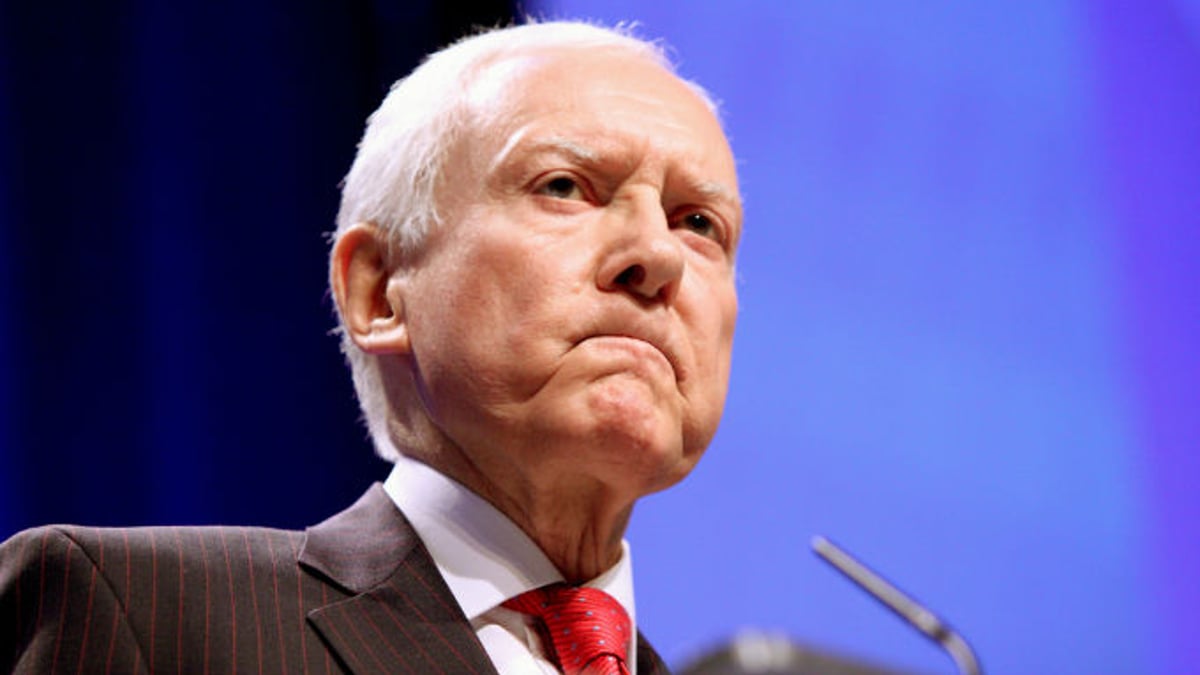Congress May Consider Federal Sports Gambling Legislation

Federal sports betting regulations may impact the existing state-by-state scramble if some congressional lawmakers have their way.
Following the landmark Supreme Court decision to repeal the federal ban on sports betting, Utah Sen. Orrin Hatch announced plans to create nationwide regulations on the industry. Any legislation banning sports betting would be nullified by the court’s decision, so instead Hatch hopes to create a legal framework.
Hatch has long opposed gambling expansion, and was a co-sponsor of the Professional and Amateur Sports Protection Act (PASPA) which created the federal restrictions on sports betting. Though he’s said he has no plans to fight for a reinstatement of the ban, he released a statement in support of a federal framework for gambling.
“The problems posed by sports betting are much the same as they were 25 years ago. But the rapid rise of the Internet means that sports betting across state lines is now just a click away. We cannot allow this practice to proliferate amid uneven enforcement and a patchwork race to the regulatory bottom. At stake here is the very integrity of sports.”
Does Hatch Support Integrity Fee?
Gambling industry observers noted the word “integrity” in the Utah senator’s statement. That word has been at the center of professional sports leagues’ requests for a slice of the revenue expected to be generated by sports gambling. Professional leagues including the NBA, NFL, NHL and MLB have said these fees are necessary to protect the integrity of the game and police itself from outside interference.
As states now weigh if and how to legalize sports gambling in their borders, the leagues have lobbied lawmakers hard to not just create a national framework, but one that includes these integrity fees. An initial 1% fee on all bets placed received pushback in statehouses, so the leagues have lowered their requests to 0.25% and turned efforts toward Washington D.C.
While some state legislatures have been somewhat more receptive to the reduced fee, the earliest adopters have not done so. Delaware, the first state outside Nevada to legalize sports betting, did so without the fee. New Jersey, which passed its laws to become the second state to legalize sports betting, also lacks the fee.
States and gambling stakeholders have opposed the fees in large part because it cuts down on revenue. While the American Gambling Association estimates $150 billion is gambled illegally on sports gambling, existing sportsbooks in Nevada typically only see about a 5% net gain. A 1% fee on all bets placed would amount to around a 20% loss in overall revenue.
Lawmakers have also called the league’s motives disingenuous. Sports leagues sued to block the initial legal challenge to legalized sports gambling. Now that they’ve lost, some feel that they’re trying to scope up as much revenue as possible.
Legislation Faces Uphill Climb
With or without the integrity fee, any legislation would face a difficult passage in the congress. Americans have increasingly supported legalized sports gambling and lawmakers would be wary to support something that could anger constituents.
The Supreme Court decision was also viewed as a victory for 10th amendment supporters and states rights advocates, which are typically supported more eagerly by conservative lawmakers. Republicans control both houses of congress and congressional leadership typically avoids even debating legislation that wouldn’t be supported by the majority of its own party.
Hatch, as senate president pro tempore, is one of the most influential members of Congress, but he is retiring after his term ends in January of next year. With him will go the most influential voice against gambling. Though his lobbying may help the bill gain traction before his retirement, he may find a hard time shepherding legislation in the current term.
With no concrete federal plans on the horizon, states will continue the slow step-by-step legalization process. Several have or have come close to doing so, and two dozen or more could have their laws, without intervention from the federal government, passed in the coming years.
Stay In The Loop With Free Bets, Insider Tips & More!
Live Betting. Sports Promos. Sent Weekly.







